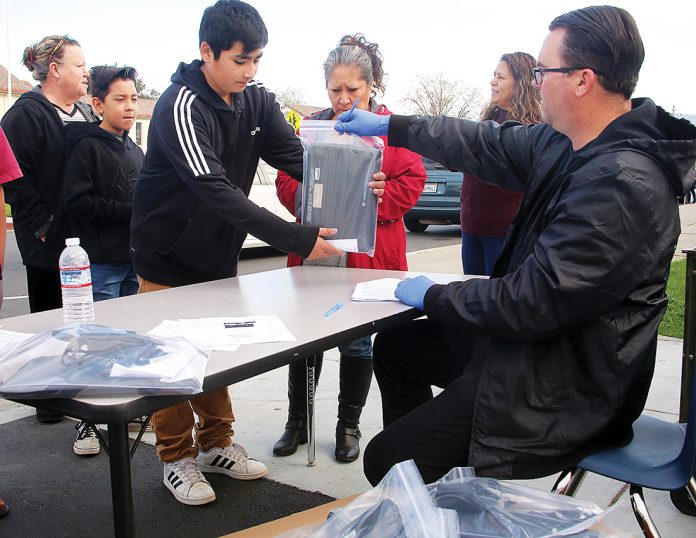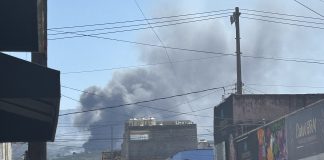It is nearly impossible to talk about 2020 and not mention Covid-19, as the pesky novel coronavirus overtook our lives in March and has not yet loosened its grip.
However, there were other stories, events and tragedies that managed to wholly affect our community even while we sheltered-in-place and hid behind our masks.
Here’s a look at a few of those stories:
Central Coast ablaze
If there is one quote that I continuously return to when thinking about the CZU August Lightning Complex fires, it’s this one from Cal Fire Operations Section Chief Mark Brunton: “I have never seen anything like this in my 34 years of firefighting.”
Quotes like those put this blaze into perspective. Now fully contained, the CZU Complex ravaged more than 80,000 acres and engulfed more than 1,400 buildings in the Santa Cruz Mountains.
It is much too early to determine the impact the fires had on the area but this fire—the ninth-most destructive in the state’s history—will undoubtedly have wide-ranging ramifications.
Perhaps even more astonishing was that just a few miles to the east and south three other massive fires—the SCU Complex and the River and the Carmel fires—were displacing thousands as well.
Damon Gutzwiller’s death
I can still remember the phone call I received from our reporter Tarmo Hannula on June 6. I was in the middle of covering a Black Lives Matter march that shut down swaths of Main Street in Watsonville when he gave me a call as the shooting was breaking.
“This is going to be huge,” he said.
As he usually is, he was right.
Sgt. Damon Gutzwiller’s death was a tragic gut punch to the community in which he was raised and tasked with protecting. It was also part of a convoluted web of politics, policing and violent cults that have been omnipresent throughout 2020.
His accused murderer, Steven Carrillo, is reportedly part of the Boogaloo Bois, a loosely organized American far-right extremist movement whose participants say they are preparing for a second civil war. He is also accused of murdering another officer during a Black Lives Matter rally in Oakland following the death of George Floyd.
Sometimes it’s easy to get lost in the Santa Cruz County bubble and believe that we are somewhat removed from the troubles and issues that are rampant across the country—such as school shootings, racism and police brutality. But this incident was a flashbulb moment that should remind us that we are not isolated from those issues. Some of them are right in our backyard.
Teachers taken
Just a month after hearing his even-keeled voice, perspective and knowledge settle down a shouting match concerning the George Washington statue in the Watsonville City Plaza, I heard the devastating news that longtime Watsonville High School teacher Abel Mejia had suddenly died.
His death in September followed that of his brother Ruben, also a teacher, and WHS counselor Federico Castañeda just weeks before.
Saying that it was a tough year for the WHS community, does not do the loss of those three educators justice. I never had the privilege to be their student, but their names were—and still are today—synonymous with the Wildcatz. I always thought the definition of a good teacher could be summed up in one sentence: They’re tough, but they’re fair.
All three of those teachers, my fellow alumni tell me, were exactly that.
Filipino apology
It might have taken longer than it should have, but the City of Watsonville’s apology to the Filipino community for the ‘Watsonville Riots’ of 1930 was a moment that I’ll never forget.
Over the course of a week, hundreds of white men roamed the streets hunting down Filipino residents and beating them to within an inch of their lives. The so-called riot—many instead call it a lynch mob—sparked a statewide revolt against imported Asian labor. The riot culminated in the shooting death of 22-year-old Fermin Tobera.
The City’s apology, which happened during a virtual city council meeting, drew statewide recognition.
“I appreciate your willingness to issue this apology,” said California State Assemblymember Rob Bonta, who was the first Filipino-American state legislator in the history of California. “It’s deeply meaningful. It expresses an intention of inclusion and forward-thinking. It’s never the wrong time to do the right thing.”
Coronavirus
Over the last nine months I’ve interviewed dozens of people about the pandemic. I found myself asking this question more than any other: Why is the situation so bad here in Watsonville? The responses I’ve received have been all over the map. Some have blamed parties and gatherings, saying that individual decisions have led to the disproportionate case numbers. Others have blamed businesses for not enforcing the masking or social distancing rules. But most have said that Watsonville, with its high-density housing and its large number of essential workers that could not shelter-in-place, could not have avoided the disproportionate case numbers—no matter how hard it tried.
When a disaster hits, much like with the 1989 earthquake, every issue—big or small—rises to the surface. Many of the reasons why the pandemic has hit Watsonville so hard have always been there, and have gone unaddressed for far too long. If there are any silver linings to this year, it is that those issues have been brought to light. It’s time for our leaders to addres








